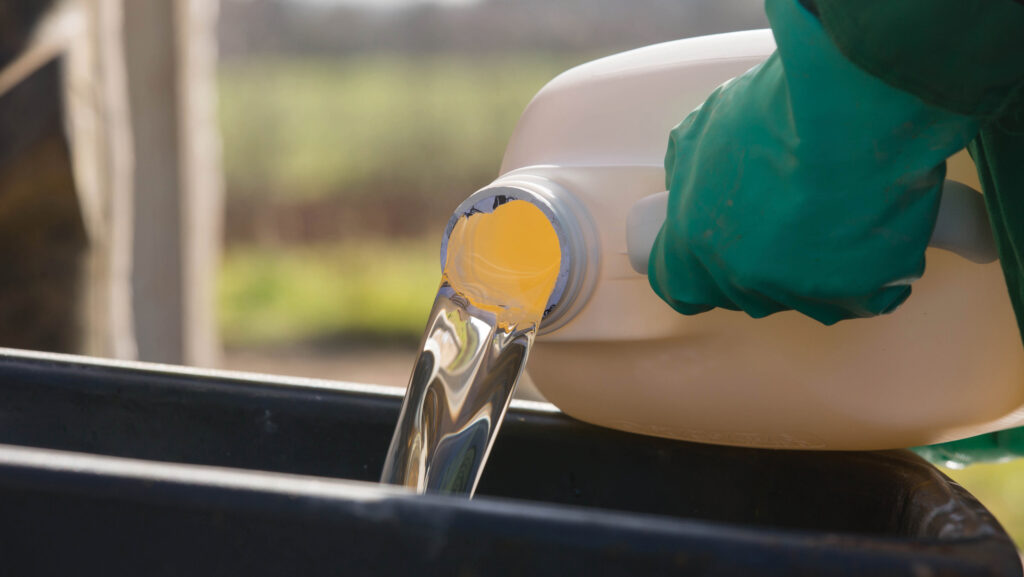New arable input price series launched by Farmers Weekly
 © Tim Scrivener
© Tim Scrivener Farmers Weekly has teamed up with industry agronomists to produce a monthly price series covering key fungicides and herbicides used on farm.
Prices are collected from a minimum of eight different suppliers across the UK, offering farmers an easy reference for comparing products and monitoring price trends over time.
Each price assumes that a walking fee is paid separately and is intended as a general guide.
See also: Grain market outlook dampened by economic uncertainty
The cost of plant protection products have eased back in recent years after peaking during the Covid-19 pandemic.
However, they still represent a significant expense for many farm businesses.
Defra’s latest agricultural price indices showed a fall in the price of agricultural inputs during the past year.
The price index for plant protection products, which includes herbicides such as glyphosate, decreased by 8.7% between February 2024 and February 2025.
Figures collected on behalf of Farmers Weekly show the average price of a generic 360g/litre glyphosate at £2.98/litre in May, down from year-earlier levels of £3.39/litre.
Wheat fungicide Univoq averaged £41/litre based on a 5-litre pack in May, 50p/litre less than in May 2024.
Wider industry
Frontier Agriculture estimates that the UK crop protection market contracted by 20% in 2024, as a result of reduced drilling leading to lower demand for products.
Syngenta, a major crop protection manufacturer and supplier, noted a decline in sales of its products in 2024.
The firm confirmed in its annual accounts that overall sales in Europe fell by 12% in 2024, with volumes back by 10%.
However, it added that the successful launch of fungicide Miravis in the UK had helped to offset some of these declines.
Meanwhile, BASF another major player in the sector, observed a decline in sales volumes across its business during the first quarter of 2025, with global tariffs more recently having an impact on trade.
Dr Dirk Elvermann, chief financial officer at BASF, said: “We produce locally for the local markets.
“Especially in these challenging times, this makes us more resilient than others and is a competitive advantage.
“This high proportion of local production is the reason why the direct impact of tariffs on BASF is likely to be limited.
“It remains difficult to assess the full impact of the current tariffs and counter-tariffs on BASF’s business at this point in time.”
